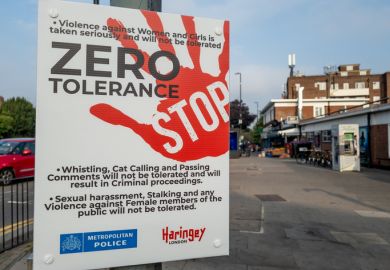Applications for Athena SWAN awards are to be revamped to stop them penalising the very academics that the gender equality mark is supposed to help, following a review which revealed widespread sector disquiet with the charter.
The independent review of Athena SWAN, published on 19 March, draws on a UK sector survey that attracted 1,578 responses – 83 per cent of whom had worked on an application for an award. However, only 26 per cent of these described this as having been a positive experience. Thirty-nine per cent said that it had been negative, and 35 per cent were neutral.
A key concern was the “unacceptable and unsustainable” burden that the application process places on the academics involved in it, particularly junior female staff – and how this was at the expense of other, more traditional career-enhancing activities such as writing grant applications, as well as work-life balance.
In another highly critical finding, only 15 per cent of respondents said that they were confident or strongly confident in the consistency of the assessment process. Nearly half – 48 per cent – were not confident or not at all confident, and 23 per cent were undecided.
Key concerns were that assessment panel members were not always experts in equality issues and were sometimes perceived to be biased.
The survey report, conducted by University of Huddersfield researchers, says that while there is widespread support for the principles of the charter, some now feel that the “scales are tipping” and that “the shortcomings of the current Athena SWAN process are beginning to outweigh the benefits of holding an award”.
The independent review, led by Julia Buckingham, vice-chancellor of Brunel University London, makes a series of recommendations designed to streamline the application process overall but targets the disproportionate burden on women by urging that institutions or departments applying for Athena SWAN awards should be required to have self-assessment teams that are representative of their overall gender breakdown.
It also recommends that applying institutions and departments should be required to demonstrate how they “recognise and support” the work of staff who prepare Athena SWAN applications and take part in review panels for the charter, including through promotion criteria.
Professor Buckingham told Times Higher Education that, although Athena SWAN was designed to promote gender equality, “if there is a very small number of women in one department then you just end up asking those women to do more and more”.
“These recommendations are designed to ensure people can also get on with what they are working in universities for: to be academics,” Professor Buckingham said. “We need institutions to recognise all those who contribute to Athena SWAN.”
On assessment, the review recommends that panel members should have “substantive experience” of leading on equality issues in a department or directorate, experience of leading a successful Athena SWAN application, and must receive initial training as well as refreshers.
Athena SWAN was launched in the UK in 2005 and more than 160 members worldwide now hold more than 800 awards between them, at “bronze”, “silver” and “gold” levels.
UK sector organisation Advance HE, which now runs Athena SWAN, said that the recommendations apply to the UK specifically but could be considered in other territories that participate in the charter, such as Ireland and Australia.
Other recommendations include lengthening the duration of awards from four years to five, ensuring that the charter embraces a wider definition of gender beyond male and female, and develops routes for professional staff, not just academic departments, to participate.
Alison Johns, chief executive of Advance HE, said that she “supported everything that the recommendations set out to achieve”.
“Our job now is to work out how best to take them forward. Many of them already align with our current plans for Athena SWAN,” she said.
POSTSCRIPT:
Print headline: Athena SWAN to be overhauled as sector faith ebbs
Register to continue
Why register?
- Registration is free and only takes a moment
- Once registered, you can read 3 articles a month
- Sign up for our newsletter
Subscribe
Or subscribe for unlimited access to:
- Unlimited access to news, views, insights & reviews
- Digital editions
- Digital access to THE’s university and college rankings analysis
Already registered or a current subscriber?







